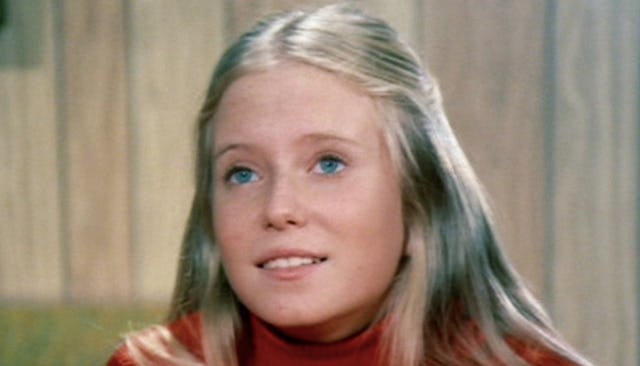It's Official: The Middle Child Is Going Extinct

If current family size trends continue, the middle child is about to become a thing of the past
As any card-carrying Millennial knows, having kids these days is fricking expensive. Of course it’s always been expensive, but as the first generation widely predicted to be worse off financially than their parents, Millennials are feeling the pinch — and it’s seriously showing in their family planning decisions.
That’s right. Millennials are now causing the extinction of the middle child. Sorry, Jan Brady.
August 12th is Middle Child Day but as an essay for The Cut points out, that holiday may soon become obsolete as more and more American families are deciding that two kids are plenty — or even one. According to Pew Research in 1976, “the average mother at the end of her childbearing years had given birth to more than three children.” In fact, nearly 40 percent of moms in 1976 between ages 40-44 had four or more children while 23 percent had three kids; 22 percent had two; and 10 percent had one.
Now? Flip those numbers around and you have modern family sizes in a nutshell. Around two-thirds of moms now stop at two kids or one, making middle children increasingly rare. Those validation and attention-seeking kids stuck between the oldest and the youngest are about to become a thing of the past.
Anecdotally, I know this to be true. The majority of my high school friends have two kids, or one — or none. Several are just now getting married (I’m 36) and a number of others are married, but postponing having kids as the prices of housing, college tuition, diapers, and every other thing needed to raise a family are simply too high to even consider. I fall somewhere in the middle as a mom who had kids quite young, but stopped at just two. My husband and I deeply wanted a third (or even a fourth) child, but money was a huge factor in our choice to keep our family pretty small.
This trend toward smaller families means the world is losing out on what middles have to offer. As the essay notes, “There is a thing called Middle Child Syndrome. There’s no Oldest Child Syndrome or Youngest Child Syndrome. We’re the only ones with a syndrome.” Middle children bring something special and unique to the table — qualities conferred by birth order that we could use now more than ever. Middles are said to possess an ability to keep the peace and a drive to set themselves apart, qualities psychologist Catherine Salmon, an expert on middle children, says can benefit everyone around them. “What few people realize is that middle children are actually more likely to successfully effect change in the world than any other birth order,” she says. “As is so often the case with middles, they’re perennially underestimated.”
Of course, the whole birth order thing could be largely bullshit. The traits commonly associated with middle children certainly aren’t exclusive to them, and the way parents raise their kids probably means a lot more than what order they were born in. Sure, as the oldest of three, I see where I got the lion’s share of parental praise and eagerness as my mom and dad excitedly groomed me to be The Best At All Things, but I also saw how they nurtured their middle child’s sensitive side and helped him see that his quieter interests (I was a loud-ass theater kid, impossible to ignore) had just as much value as my showier ones. Oh, and our youngest brother’s standout athletic talents. Sorry, Paul — I know growing up in between us obnoxious spotlight hogs couldn’t have been easy.
This research probably won’t cause my generation to pump out more kids in the interest of keeping middle children in the mix, but it’s interesting to ponder a future without any Jan Bradys. That said, knowing how rare those in-between kiddos are about to be might cause their parents to recognize them for how special they are.
Take that, Marcia.